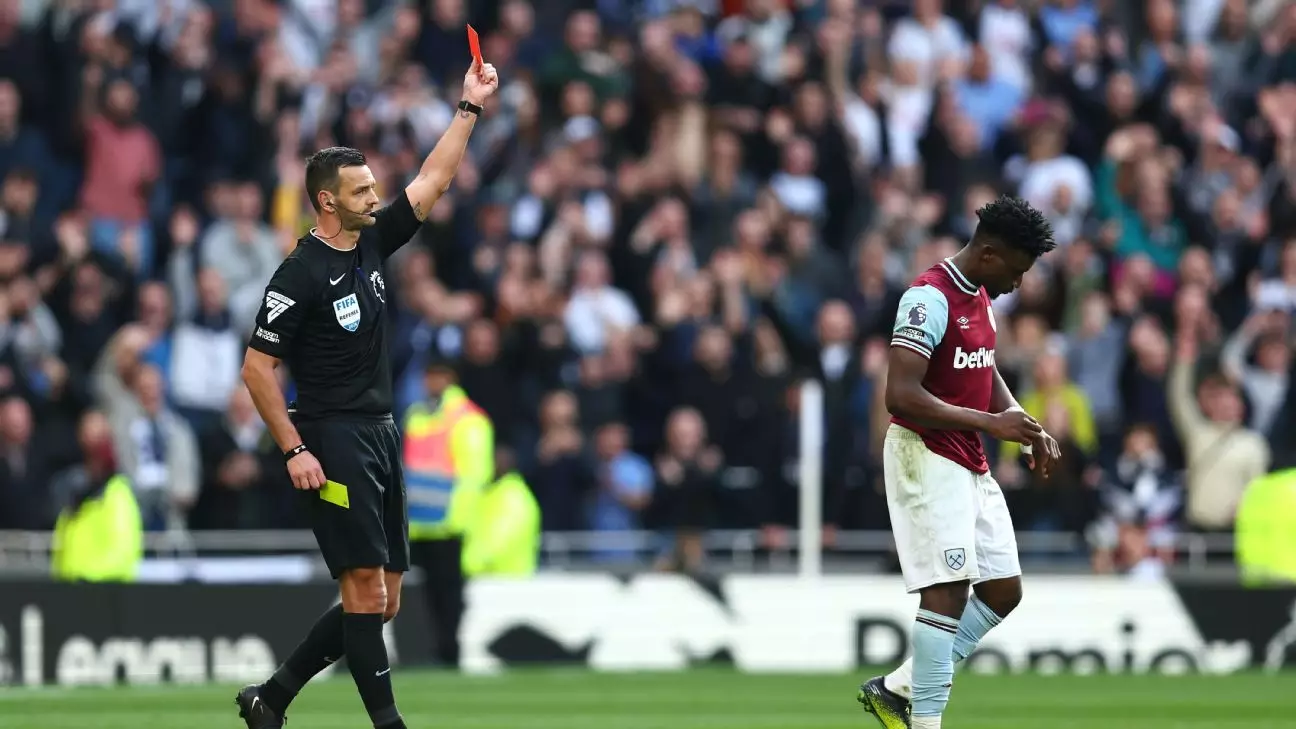The recent decision by the FA to extend Mohammed Kudus’s suspension is both a reflection of his actions on the pitch and a broader commentary on player conduct in modern football. During a heated match against Tottenham Hotspur, Kudus’s behavior escalated tensions on the field, leading to a significant disciplinary response from the governing body. The incident, which occurred in the 82nd minute of a 4-1 defeat, involved Kudus directing violent conduct towards Spurs players, initially earning him a yellow card that was later upgraded to a red following a VAR review.
This moment of aggression not only cost Kudus his place in the squad for multiple upcoming matches but also opened the floodgates for subsequent sanctions against West Ham United. Importantly, the misconduct did not exist in isolation; it was part of a larger narrative in football that emphasizes the need for player accountability and the promotion of sportsmanship.
With the FA’s ruling to suspend Kudus for five matches and impose a fine of £60,000, it is crucial to consider the repercussions not just for the player but for the entire team. Kudus will miss key fixtures, including matches against Newcastle United and Arsenal, which could impair West Ham’s season ambitions. His absence leaves a gap in the attacking lineup, forcing the coaching staff to reconsider strategies and player roles.
Moreover, the collective punishment of the club, with West Ham facing a £30,000 fine for failing to ensure player discipline, highlights the importance of maintaining a professional environment. The club’s acknowledgment of their responsibility in this context serves as a critical reminder of the responsibilities teams have in managing player behavior both on and off the pitch.
Kudus’s actions, and the subsequent consequences, spark a necessary conversation about the culture of sportsmanship in football. The immediate aftermath—a public apology and expressions of embarrassment from the player—signals recognition of the gravity of his misconduct. However, the question arises whether mere apologies are sufficient in this era of high-stakes competition.
Football clubs and their players must strive to uphold values of integrity and respect, essential for fostering the spirit of the game. The FA’s decisions illustrate a zero-tolerance approach toward violent conduct, emphasizing that such behavior will not be overlooked. This is particularly significant as the sport’s viewership broadens globally, where players serve as role models to millions.
The lingering implications of Mohammed Kudus’s ban extend beyond his individual punishment. The incident serves as a cautionary tale, calling into question the responsibility of players, clubs, and governing bodies in ensuring that football maintains its foundational principles of fair play and respect. As the season progresses, Kudus and West Ham United must reflect on this ordeal to foster a more positive environment and image in the competitive world of football. While punitive measures are one aspect of the conversation, proactive steps towards teaching and encouraging sportsmanship are essential for the future of the game.

